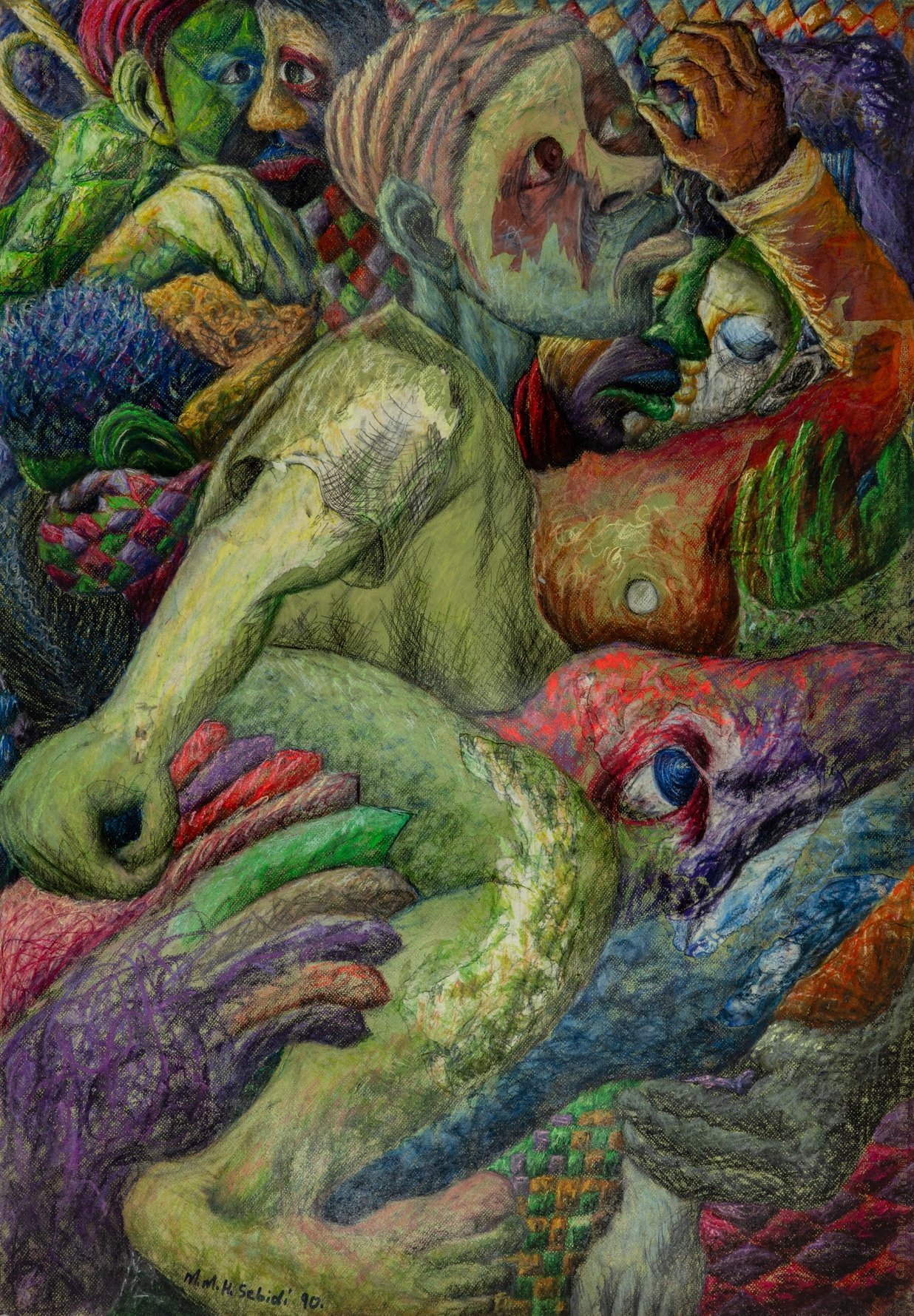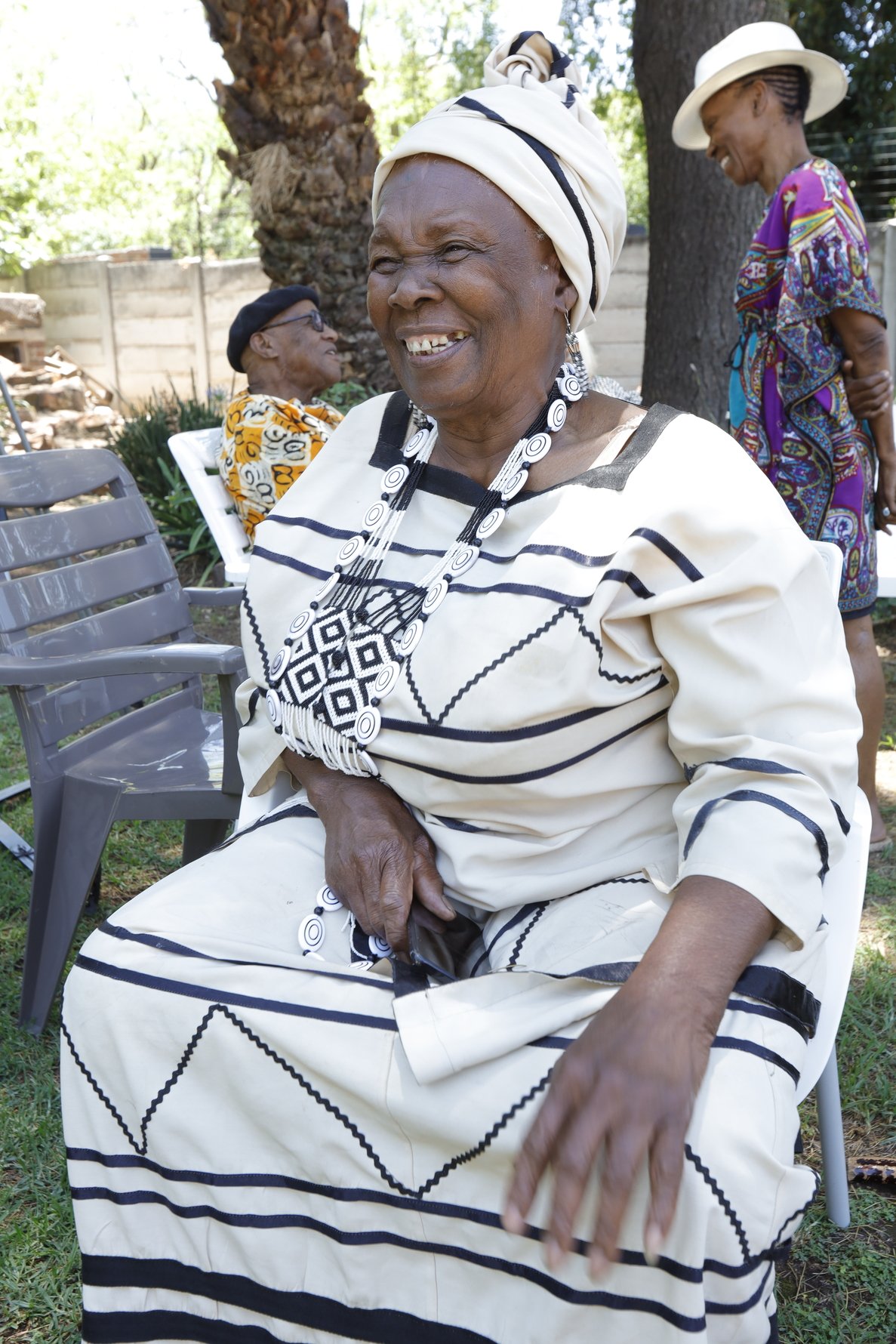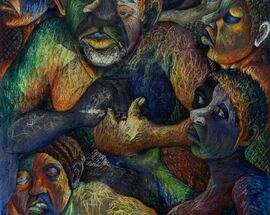In 1991, before South Africa's first democratic elections, Marapyane-born Mmakgabo Helen Sebidi took her art to Sweden. There, she was set to exhibit a series of works to facilitate communication between Sweden and her home country. But the pieces were lost, leading to more than three decades of grief and many unanswered questions.
It is remarkable that 32 years after they disappeared, 28 of Sebidi's artworks were found in the attic of Nyköping Folk High School in Sweden and have since returned home. These long-lost treasures were shown to the public for the first time in Ntlo E Etsamayang (The Walking House) at UJ Art Gallery and have since travelled to Everard Read's Circa Gallery, where they are displayed in concert with three large-scale sculptures by Sebidi, unveiled at FNB Art Joburg 2024.

Sebidi tells curator Gabriel Baard, "I feel that [the artworks] were hidden for this communication to be extended." This suggests, as Baard notes, that if her works had been exhibited and returned to her in 1991, "they would most certainly have been sold and the communication ended. This body of work, brought into the world just before the dawn of our democracy and returned 30 years later, is a portrait of humanity in a kaleidoscopic montage of political turmoil, lost for three decades. It represents a moment of antipodal communication frozen in time that is perhaps more poignant today than ever."
A trailblazing South African artist, Sebidi's work rouses that which is most ancient and enduring, and offers a vision for the future. As she sees it, she's here to teach people to see their lives and understand themselves. The exhibition's title draws on the words of her beloved grandmother, who said, "It is you I am building into a walking house destined for where our sun sets and rises to houses that, like you, are built from hard labour. It is here you will knock on the door of each house and be received."

The works in Ntlo E Etsamayang (The Walking House) represent a pivotal juncture in Sebidi's practice; a stylistic transformation that is part figuration, part abstraction, yet continuously seeking to escape the boundaries of both. The artworks pulsate with energy, communicating Sebidi's unbounded search into the relationship between humanism and spiritualism as they relate to the contemporary black African lived experience.
While she is not one for accolades, her track record is most impressive. In 1989, she was the first black woman to win the Standard Bank Young Artist Award, and she was recognised as a "national treasure" when, in 2004, then President Thabo Mbeki awarded her the Order of Ikhamanga in Silver.
Ntlo E Etsamayang (The Walking House) shows at Everard Read's Circa Gallery in Rosebank until Mon, Jan 20, 2025. Note: Both Everard Read and Circa Gallery close over the festive season from Fri, Dec 20, 2024 – Mon, Jan 6, 2025.



_m.jpg)


